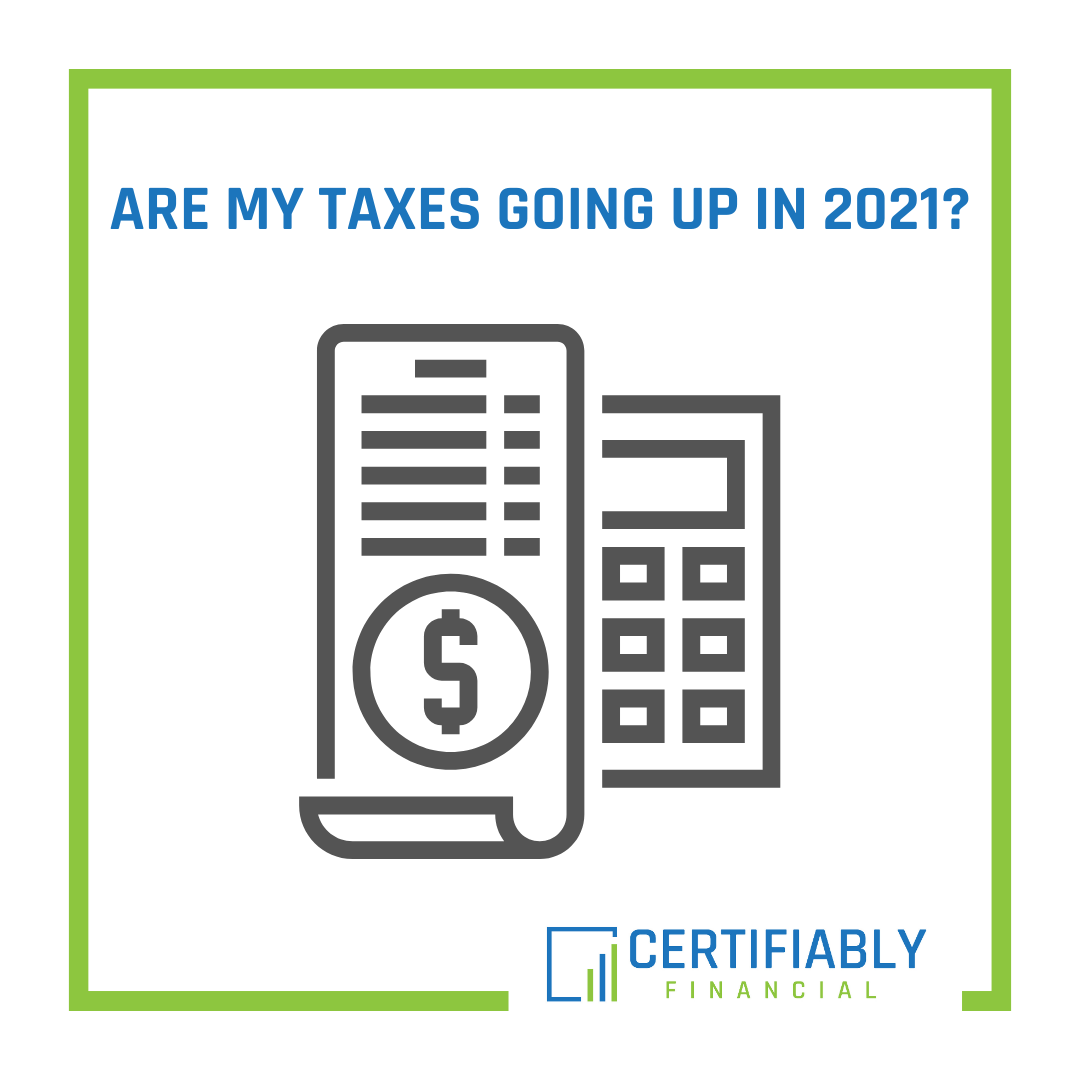I’ve heard many versions of the question “Aren’t taxes going up?” over the past couple of weeks. This often comes along with a misguided (but partially true) statement about something that the person has heard about President Biden’s proposed tax plan. Unfortunately, we’re often provided with the headlines that make compelling news rather than a detailed report of the news.
Given that many of those who have asked me about their taxes increasing have followed up their question with a vague description of what they’ve heard is going to happen, I wanted to take some time to dive a little deeper into the details. Please keep in mind that I am not a CPA, nor am I a tax expert, but I do have access to resources of those who are and who have completed deep dives into the proposed changes. (Sources below).
Also, please keep in mind that these tax changes are only proposals at this time. This means that the proposals I have outlined below may be completely changed by the time they become law.
Most people who have posed these sorts of questions to me have been concerned about their taxes increasing. In reality, the proposed tax rate increases will only affect a very small percentage of Americans since very few earn over $400,000 per year. However, other proposed changes could have an impact on a more significant percentage of the population.
There are plenty of proposals to eliminate the step-up in basis upon death, increase some tax credits, and implement a flat retirement account contribution credit, among others, but for the purposes of this article I’m going to focus on the proposed changes in income tax rates.
Ordinary Income Tax Rate Increase for Income Over $400,000
Ordinary income tax rates under the Biden tax plan proposal would increase for those with taxable incomes higher than $400,000. Essentially, this is a reversion back to the 39.6% top tax rate that was in effect prior to the Tax Cuts and Jobs Act.
There are no changes proposed to tax brackets for taxable income under $400,000.
I think it’s often forgotten that ordinary income tax rates in the United States are progressive. What I mean by this is that there are tax brackets (see 2021 Federal Income Tax Brackets and Rates here) and your federal tax rate increases as your income increases.
Once your income surpasses the top end of a tax bracket, your entire income is not taxed at the next tax rate, but your next taxable dollar is taxed at that higher rate. (Here’s a more thorough explanation of marginal tax rates).
The 39.6% top tax rate proposal would replace part of the current 32% bracket, the entire 35% bracket, and the entire 37% backet (the top tax bracket under current law).
Under current law, the 32% tax bracket in 2021 tops out at $418,850 of income for married filing joint taxpayers. This means that the top tax rate could increase by 7.6% for income over $400,000 (from 32% to 39.6%). In comparison, the current top ordinary income tax rate is 37% for income over $628,300 for married filing joint taxpayers. This would be a 2.6% increase of the top tax bracket.
Capital Gains Tax Rate Increase for Income Over $1M
In addition to increasing ordinary income taxes for high earners, the proposal would increase capital gains taxes for gains in excess of $1M. Capital gains over $1M of income would be taxed at ordinary income tax rates.
The compilation of the $1M threshold includes ordinary income as well as capital gain income. Currently capital gains tax rates are either 0%, 15%, or 20%, depending on your income.
This means the tax rate for capital gains over $1M would nearly double from 20% (plus 3.8% Net Investment Income Tax as well as state and local taxes, if applicable) to 39.6% (plus 3.8% Net Investment Income Tax as well as state and local taxes, if applicable).
For example, if someone were earning $800,000 and they incurred capital gains of $300,000 (total of $1.1M income), then $100,000 of those gains would be taxed at the ordinary income tax rate rather than the preferential long-term capital gains tax rate of 20%.
In this case, given the ordinary income tax rate proposal, those $100,000 of gains would be taxed at the top ordinary income tax rate 39.6% (plus an additional 3.8% Net Investment Income Tax if it remains in place and state and local taxes, if applicable).
Proposals Can Change
Please keep in mind that these changes to income tax rates are only proposals at this time. What is written here is subject to change prior to becoming law. My intent was not to provide a thorough explanation of potential tax law, but to provide a better understanding of what may happen, and how you may be affected, under the current proposals.
Sources
1 Year-End Tax Planning Under The Forthcoming Biden Presidency (Kitces.com)
2 Details and Analysis of President Joe Biden’s Tax Plan (Tax Foundation)

